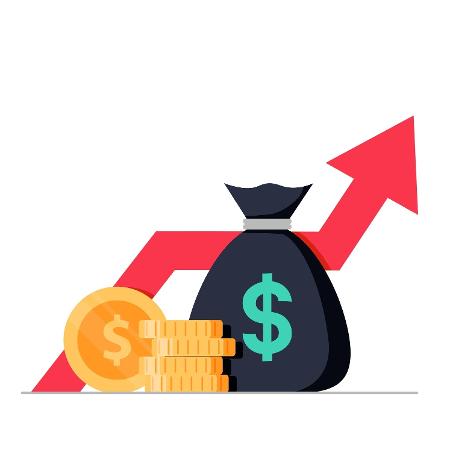
The war between Russia and Ukraine may put even more pressure on Brazilian inflation in the short time this year, experts say. In practice, the conflict, close to oil and grain-producing regions, will raise commodity prices and Brazil will be somewhat impacted. Analysts say oil giant Petrobras could raise gasoline and diesel prices and warn about more expensive products, especially those made of grains like wheat and oats, in the wholesale and retail markets.
“It is indeed something that will affect inflation, not only in Brazil but on a global scale,” said Étore Sanchez, chief economist at Ativa Investimentos, on the beginning of the Russian invasion of Ukrainian territory. He warned that, in the case of gasoline, which has a great weight in the formation of Brazil’s benchmark inflation index IPCA, calculated by the Brazilian Institute of Geography and Statistics (IBGE), this product already operates with a price that has “a 20% lag” in relation to the international price, according to his calculations. This was before the conflict in Ukraine, which started at dawn on Thursday.
The conflict may contaminate Brazil through two channels, said Alessandra Ribeiro, a partner and head of macroeconomics and sector analysis at Tendências Consultoria. One is the financial one, due to capital flight from emerging economies to less risky assets. The other is the “real economy,” with the increase in commodity prices reducing consumption in global terms.
According to calculations by Rafaela Vitória, chief economist at Banco Inter, the gasoline price lag has been between 10% and 12% — and has been “admirably” controlled by Petrobras. But the specialist admitted that the situation has changed completely with the entry of Russian troops into Ukraine. This is because the situation leads to an escalation in the price of the Brent-type oil barrel, she noted. “We may have imminent readjustment of fuels [in Brazil],” she admitted.
André Braz, an economist at Fundação Getulio Vargas (FGV) and responsible for inflation calculations in the General Price Indexes (IGPs) family, agrees. “With this situation, oil has already reached the $100/barrel threshold,” he warned. “It’s a situation that could get worse as this conflict evolves and perhaps compromise oil production, oil extraction. This will still involve other countries and it is just beginning,” he warned.
Mr. Braz commented that oil was already rising before the conflict, but the recent appreciation of the real against the dollar helped to offset the impact, in Brazil, of the rising prices of dollarized commodities. “Brazil is being visited by a large speculative volume, the smart money,” he pointed out, explaining that, with more dollar inflows into the country, the foreign exchange rate dropped: “It is a volatile money, but it helps to reduce the impact of dollarized commodities. So, if we had not accumulated a positive variation of the real, it would be a harder impact,” he said.
The FGV expert noted, however, that although a recent appreciation of around 10% of the real against the dollar softens some impacts, it “softens but does not prevent” the inflationary impact of high commodity prices in Brazil. For the specialist, it is possible that there will be news of fuel hikes in the coming days, such as gasoline and diesel.
Besides oil, another warning from the specialist is the probable increase in the price of grains and their products in Brazil. He recalled that Russia is a strong producer of wheat, and Brazil is not self-sufficient, which is important both in the calculation of wholesale and retail inflation, he noted. “If wheat flour goes up, it contaminates a long chain [in retail] that goes to wheat flour, pasta, bread, crackers, noodles, a series of component items of the basic food basket,” he listed. “We don’t reap anything positive from a war, and the effects of it will certainly get to inflation,” he said.
Rodolfo Margato, an economist at XP, also sees “an upward pressure bias” on oil products and grains produced in conflict areas, such as wheat, rye and oats. But he pointed out that it is impossible to project impacts in percentage points in inflationary indicators at the beginning of the conflict in the region.
But, in the case of commodities, he said that before the war between Russia and Ukraine the world was already facing reduced stocks of commodities and, in the case of Brazil, domestic inflation in 12 months already was in double-digit levels. This week, before the Russian invasion of the neighboring country, the IPCA-15 for February, a preview of the IPCA, the official inflation indicator, already saw a 12-month increase of 10.76%. “The scenario is of higher global uncertainty, especially commodity prices rising,” he acknowledged, adding that, in general, the conflict in Ukraine makes it more difficult to fight inflation in Brazil.
(Anaïs Fernandes, Marina Falcão and Marta Watanabe contributed to this story.)
Source: Valor International
